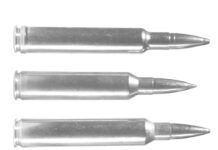In a review of a recent court case, the Third Circuit Court of Appeals has released its full opinion in the case of Trinity Wall Street v. Wal-Mart, and it’s a victory for the giant retail chain’s ability to sell the firearms it wishes to sell.
At issue was whether Wal-Mart improperly excluded from 2014 proxy materials the church’s shareholder proposal to require the corporation’s board of directors to have standard-capacity AR-style rifles removed from the stores. The church owns 3,500 Wal-Mart shares.
A lower court ruled against Wal-Mart, finding the big-box retailer should have included the church’s proposal in proxy materials, even though Wal-Mart received Securities and Exchange Commission approval to exclude it.
Earlier this year, the court issued a short opinion vacating a lower court’s order for Wal-Mart to include a measure from minority shareholder, Trinity Wall Street Church, to force a vote on a resolution that sought to have the Wal-Mart board of directors review decisions to sell certain popular firearms.
The court’s unanimous opinion this week rejected the anti-gun activist church’s ballot proposal as one that was properly excluded from Wal-Mart’s shareholder ballot because it struck at “the heart of Wal-Mart’s business: what it sells on shelves.”
In the decision, the court said, “even if Trinity’s proposal raises sufficiently significant social and corporate policy issues, those policies do not transcend the ordinary business operations of Wal-Mart.”
This case highlights the risk posed by activist shareholders who attempt to use the proxy proposal process to force publicly held businesses to stop selling certain products — such as AR-15s.




























